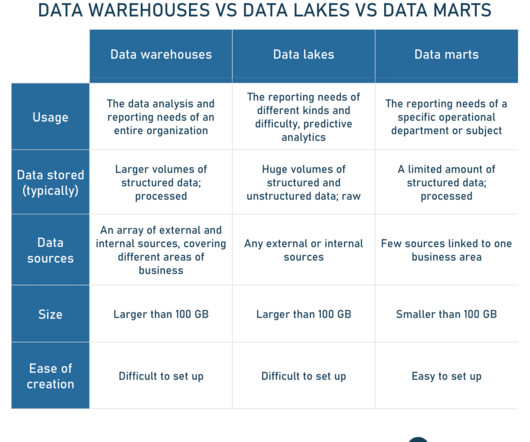Data Engineering Glossary
Silectis
JANUARY 3, 2021
If you’re new to data engineering or are a practitioner of a related field, such as data science, or business intelligence, we thought it might be helpful to have a handy list of commonly used terms available for you to get up to speed. Big Data Large volumes of structured or unstructured data.











Let's personalize your content